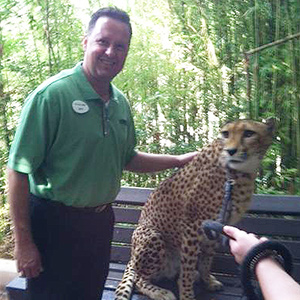 Every business is a collection of processes. Those processes are broken down into primary and secondary. Primary processes create value, while secondary processes support them. Lean is a process management philosophy and technique that focuses on managing and improving those processes. One of the main goals of Lean process improvement is the elimination of waste. This includes reducing costs, time, waiting, material or anything that gets in the way of achieving quicker service delivery to the customer with reduced lead times. With the help of Lean practices, businesses are able to manage their processes better to provide a greater ROI to its investors.
Every business is a collection of processes. Those processes are broken down into primary and secondary. Primary processes create value, while secondary processes support them. Lean is a process management philosophy and technique that focuses on managing and improving those processes. One of the main goals of Lean process improvement is the elimination of waste. This includes reducing costs, time, waiting, material or anything that gets in the way of achieving quicker service delivery to the customer with reduced lead times. With the help of Lean practices, businesses are able to manage their processes better to provide a greater ROI to its investors.
Chicago native, Jeff Foster, was in the hospitality industry for the first 25 years of his career, he taught Lean thinking and management for 10 years. He has worked with San Diego Zoo Global for two years teaching and implementing Lean thinking at the zoo. The College of Extended Studies (CES) at San Diego State University caught up with Jeff Foster, SDSU Lean Advisory board member and San Diego Zoo Global Director of Process Improvement.
What are you doing at the zoo and safari park?
We’re a well-established organization in the city – we’ve been around for 100 years. Currently, I’m teaching tenured associates in phases – the first phase is change management, Lean thinking, forward thinking, problem solving mindset versus reactive or rearview mirror mindset. Also establishing our KPIs, giving associates basic tools to improve processes, and teaching them the concepts of process improvement – why it’s needed now, what does it mean to employees, and how it will benefit the organization.
You worked in process improvement in the food and business industry. Now, you are with the zoo – is process improvement easily transferrable from two different industries?
Well yes and no. Originally Six Sigma and Lean were designed in the manufacturing realm, applying the concepts to service organizations meant adapting the tools and mindset to the terminology to fit more of the service industry. What I learned at the zoo was I had to additionally change the approach because the zoo is non-profit. The drive in corporate America is in the margin, so when you speak about saving dollars and keeping more money toward the bottom line it means something to the entire organization. When you’re at a non-profit, the majority of the organization is there for the passion. They are there because they love the purpose and the vision, so telling them they’re going to save $10,000 doesn’t have the same impact, and same drive or transparency. They can’t translate that into passion. It necessitates an adjustment of the purpose. The purpose needs to be ‘we are going to have more ability to do what we want to do, and we’re going to do that because were going to save money and reallocate our resources’. So, that transition, that change of mindset, I had to learn the first year I was at the zoo.
What interests you most with what you’re currently doing?
The fact that were moving the needle! We’re making strides within the organization, and continue to show success in thinking differently and approaching the business differently. We are definitely making an impact. What’s exciting to me is I’m starting to see the lights go on – there’s a lot of satisfaction in that.
What are your favorite projects in process improvement and Lean?
My favorite projects are the ones that involve the line staff, the ones at the grassroots of the operation. Sometimes concepts are discussed at higher levels of the organization and the purpose may not be translated clearly across all areas. When you provide a clarified purpose to the line staff, and then they grasp it and run with it, it’s very rewarding.
What’s the biggest surprise about this particular industry?
That Lean concepts and Lean tools can be applied to any situation. You just have to open your eyes and see the opportunity.
You’re on the Lean advisory board – tell me about your experience.
I’ve only been on the board for a brief period. It’s a great resource and a great network, both locally as well as an opportunity to widen the net of Lean thinking and problem solving. As the program goes forward we have more opportunity to catch new crowds, industries, and types of people to broaden the spectrum of Lean.
How to do you think Lean benefits one’s career?
Lean benefits one’s career by making the person nimble – providing them an opportunity to see things differently. A lot of times you go into an industry and its training on the job, the fact that people can walk in now and say “Why do we do this?,” ”How are we measuring it?,” and “How do we know were making an improvement?” When a person asks those types of questions it makes them more successful over the long term by creating a learning environment. The marketplace changes so rapidly in any industry – a problem solving mindset approach to business allows organizations to be nimble, faster, better planners, faster change implementers, and allows them to effectively stay ahead of the competition by changing faster and learning to see challenges before they happen.
What are the main skills or type of personality to be successful in this business?
I don’t know if there is a type of personality. I think anyone can be successful using Lean thinking. I think it takes a certain amount of questioning. The person would have to be inquisitive. I would say that it doesn’t necessarily need to be someone who is new and doesn’t know any better, but a person who can think that maybe there just isn’t one way to do things.
Are there any main skills for this industry?
I don’t think so. I think there is a certain amount of influencing or persuasive skills, those things are helpful. Frequently, Lean thinkers have to influence others to change their way of thinking and that’s not necessary in their direct line of control. There needs to be a certain amount of negotiating and a way of presenting the message in a way that the audience can hear it.
What are your future plans?
My future plans are to affect the entire organization. I am interested in converting all of the groups at the San Diego Zoo Global (from the top down) to be forward thinking and problem solving and not so much stuck in the way they’ve been doing things for many, many years.
Anything else that is important about the industry?
Only that you can’t be afraid to try, and you can’t be afraid to fail. There needs to be a parameter of failure, there needs to be an ability to fail so you are able to find the successes. Once you find that success it will more than make up for any failure you had along the way.




